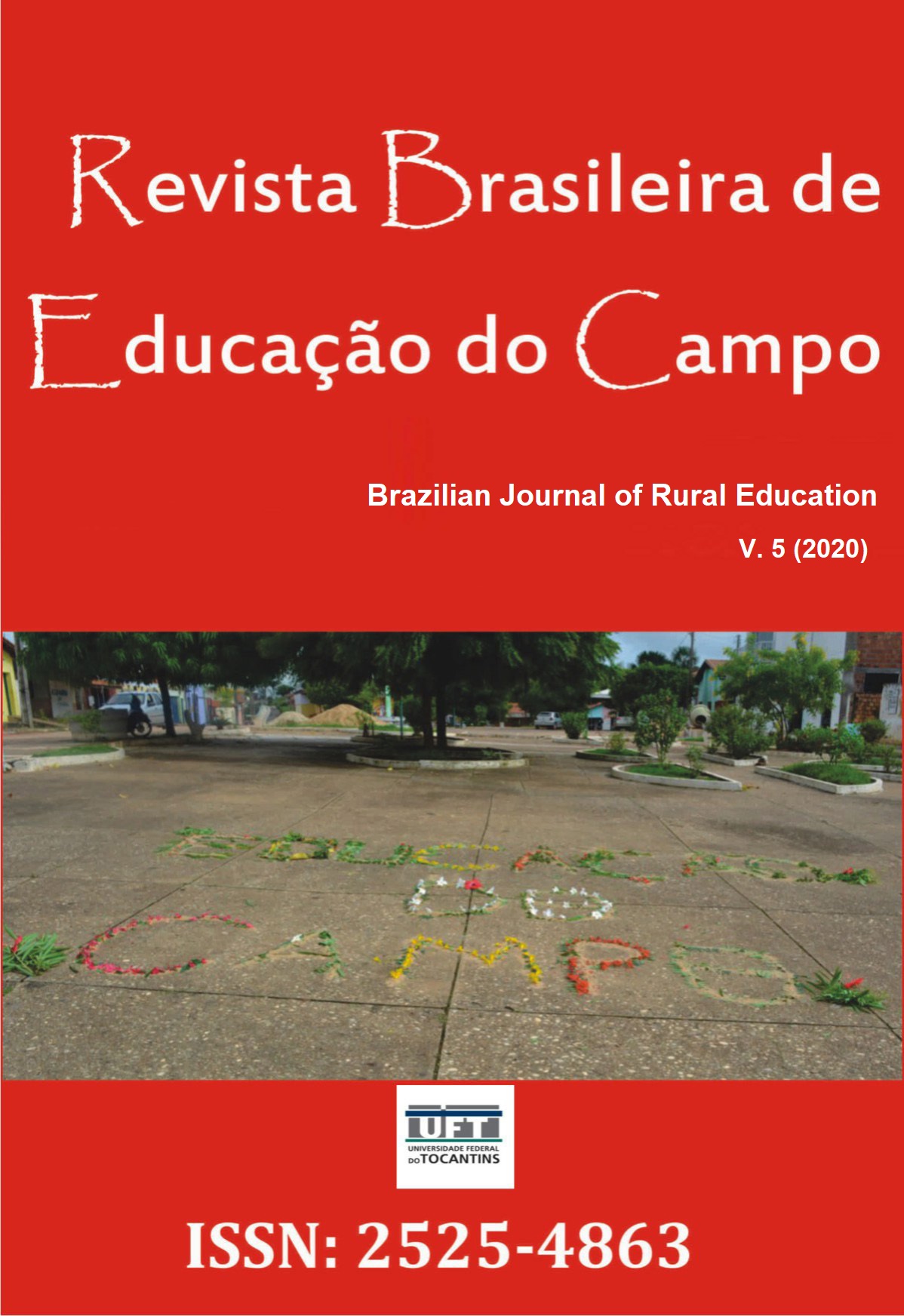Special Education in rural schools: a clipping about the educational inclusion in the interior of the state of Espírito Santo
DOI:
https://doi.org/10.20873/uft.rbec.e9068Abstract
ABSTRACT. This study discusses the special education developed in rural schools from exploratory research made by means of a semi-structured questionnaire applied to teachers of two rural schools, located in the interior of the State of Espirito Santo. The study aims to analyse how has occurred the inclusion of the target students of the special education in these institutions based on testimony of the teachers. The research reveals that some impasses of these schools in relation to inclusion this target group are similar to urban contexto, for example, in the formation of tearchers and need of public investment. However, when are added the geographical, social and cultural realities in the campesino contexto, there is a need of a look more applied to special education in rural schools, thinking about a specialized educational attendance and formation of articulated teachers to local realities of small farmers, quilombolas, indian communities, fishemen, squatters, riverside communities, farm workers, landless workers and everyone else who lives in the countryside.
Downloads
Literaturhinweise
Anjos, C. Felix. (2016). Realidades em Contato: Construindo uma Interface entre a Educação especial e Educação do Campo (Dissertação de Mestrado). Universidade Federal do Espírito Santo, Vitória.
Brandão, C. R. (2007). O que é educação. São Paulo: Brasiliense.
Caldart, R. S. (2002). Por Uma Educação do Campo: traços de uma identidade em construção. In Kolling, E. J., Cerioli, P. R., & Caldart, R. S. (Orgs.). Educação do Campo: identidade e políticas públicas (pp. 18-25). Brasília, DF: articulação nacional Por Uma Educação do Campo.
Caldart, R. S. (2012). Educação do Campo. In Caldart, R. S., Pereira, I. B., Alentejano, P., & Frigoto, G. (Orgs.). Dicionário da Educação do Campo (pp. 257-265). Rio de Janeiro, RJ: Escola Politécnica de Saúde Joaquim Venâncio, Expressão Popular.
Cury, C. R. J. (2016). Educação Inclusiva como direito. In Victor, S. L., & Oliveira, I. M. (Orgs.). Educação Especial: políticas e formação de professores (pp. 17-34). Marília, SP: ABPEE.
Constituição da República Federativa do Brasil. (1988, 05 de outubro). Recuperado de: http://www.senado.gov.br/sf/legislacao/const/
Freire, P. (2016). Pedagogia do oprimido. Rio de Janeiro: Paz e Terra.
Gil, A. C. (2008). Como elaborar projetos de pesquisa. 4. ed. São Paulo: Atlas.
Lei n. 9.394, de 20 de dezembro de 1996. (1996, 23 de dezembro). Estabelece as Diretrizes e Bases da Educação Nacional. Recuperado de: http://www.senado.gov.br/sf/legislacao
Decreto n. 7.352/2010. (2010, 4 de novembro). Dispõe sobre a política de educação do campo e o Programa Nacional de Educação na Reforma Agrária – PRONERA. Recuperado de: http://www.planalto.gov.br/CCIVIL_03/_Ato2007-2010/2010/Decreto/D7352.htm
Minayo, M. C. S. (2002). Ciência Técnica e Arte: O desafio da Pesquisa Social. In Deslandes, S. F., Neto, O. C., Gomes, R., & Minayo, M. C. S. (Orgs.). Pesquisa Social: teoria, método e criatividade. Petrópolis, RJ: Vozes.
Política Nacional de Educação Especial na Perspectiva da Educação Inclusiva (2008). Recuperado de: http://portal.mec.gov.br/index.php?option=com_docman&view=download&alias=16690-politica-nacional-de-educacao-especial-na-perspectiva-da-educacao-inclusiva-05122014&Itemid=30192
Veröffentlicht
Zitationsvorschlag
Ausgabe
Rubrik
Lizenz
Creative Commons Attribution License
Creative Commons Attribution License
Proposal for Copyright Notice Creative Commons
1. Policy Proposal to Open Access Journals
Authors who publish with this journal agree to the following terms:
A. Authors retain copyright and grant the journal right of first publication with the work simultaneously licensed under the Creative Commons Attribution License that allows sharing the work with recognition of its initial publication in this journal.
B. Authors are able to take on additional contracts separately, non-exclusive distribution of the version of the paper published in this journal (ex .: publish in institutional repository or as a book), with an acknowledgment of its initial publication in this journal.
C. Authors are permitted and encouraged to post their work online (eg .: in institutional repositories or on their website) at any point before or during the editorial process, as it can lead to productive exchanges, as well as increase the impact and the citation of published work (See the Effect of Open Access).














